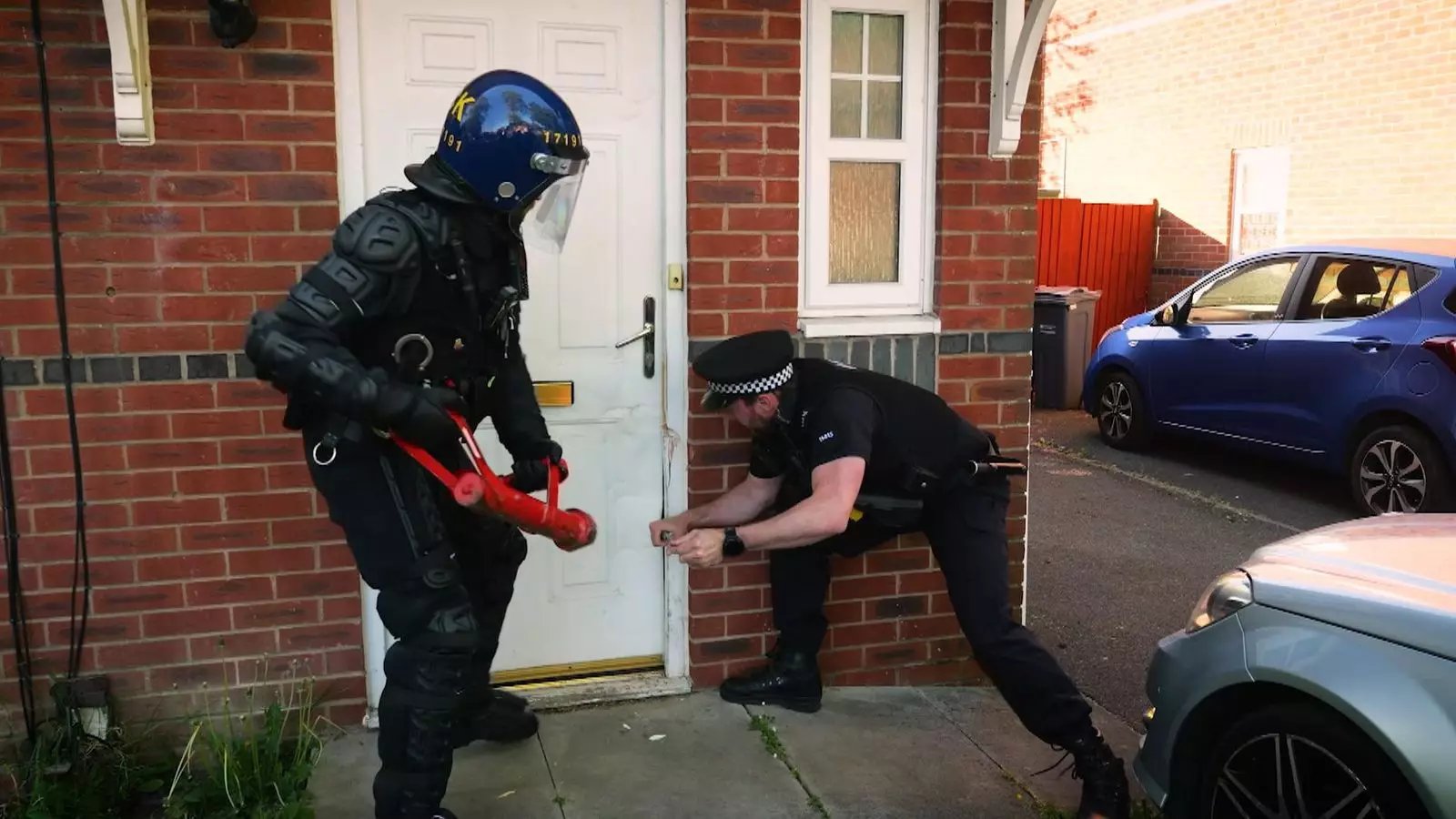In a stark reminder of the unintended consequences of cannabis criminality, organized crime has increasingly commandeered residential properties to cultivate illegal cannabis farms. These operations not only undermine the concept of home and community but also jeopardize the safety of innocent residents. This shift from traditional illicit growing methods to using rented homes as clandestine farms signifies a vicious entrenchment of lawlessness that thrives under the radar. The ramifications of such activities extend beyond mere legal transgressions; they pose immediate physical dangers to the neighborhoods they invade.
The crux of this predicament is not merely the cultivation of cannabis but the intricate layers of violence and intimidation orchestrated by these criminal enterprises. Police reports reveal a harrowing spike in violence linked to rival gangs, which engage in brutal confrontations known as ‘taxing’—a euphemism for armed theft of each other’s product. The grim reality is that anyone, including innocent bystanders, can become collateral damage in these violent power struggles. This is not just a matter of ‘taxing’ rival operations; it is about asserting dominance in a realm where human lives are devalued and disregarded.
Unchecked Dangers: The Electrical Hazard
Moreover, the operational tactics employed by these gangs introduce an alarming electrical hazard that affects entire neighborhoods. To obfuscate the substantial electricity demands of their operations, criminals often resort to dangerous methods of bypassing electrical meters. This practice, known as ‘abstracting’, not only constitutes theft but also constitutes a ticking time bomb, as haphazard electrical setups lead to increased fire risks. This negligence towards safety standards results in tragic incidents, like the tragic explosion that claimed the life of seven-year-old Archie York. Such tales underscore the stark disconnect between the seemingly mundane nature of cannabis cultivation and the catastrophic consequences it can unleash.
Officer Bree Lanyon’s comments highlight an urgent call to action, emphasizing not only the integrity of law enforcement efforts but also the pressing need for community awareness. When lives are on the line due to neglected electrical safety, the trivialization of cannabis cultivation as a mere petty crime becomes incomprehensible. It is this mindset that emboldens organized crime to flourish, unscathed by the collective apathy surrounding the lethal intersection of drugs, electricity, and violence.
Misconceptions and Arrogance: The General Public’s Attitude
There remains a significant schism between public perception of cannabis farming and the grim reality articulated by law enforcement. Desensitized and often dismissive, many individuals rationalize these activities as relatively innocuous, failing to grasp the broader implications. Detective Inspector Paul Crompton’s frustration reverberates throughout the law enforcement community; the belief that cannabis operations are merely harmless betrays the severity of the associated criminal activity. When community members, landlords, and even policymakers downplay the gravity of these operations, they allow violent crime to proliferate under the guise of legality.
Equally concerning is the complicity of landlords, often unaware of the telltale signs that might indicate their properties are being exploited for illegal purposes. As noted by British Landlords Association’s chief executive Sajjar Ahmad, the term “horrific” scarcely encapsulates the damage and strife that come with turning a home into a breeding ground for criminal enterprise. Furthermore, the engagement of rogue landlords perpetuates this issue, as they facilitate the operations of these gangs due to a willingness to overlook red flags in exchange for short-term financial gains.
A Clarion Call for Collective Awareness
The urgency for a collective awakening within society cannot be overstated. Citizens must rally against the romanticized notion of cannabis; it is time to confront the harsh realities that accompany its illegal cultivation. The multifaceted threats presented by organized crime groups who leverage rented homes for criminal gain far outweigh any perceived benefits of legalization discussions centered on personal use.
While it is paramount to advocate for progressive cannabis policies, awareness of the real consequences that this illegal market births must guide conversations. Community vigilance, landlord accountability, and robust law enforcement actions together present a viable strategy for mitigating this rising threat. As the complexities of the cannabis landscape evolve, so must our societal responses, lest we continue to allow organized crime to overshadow the pursuit of responsible cannabis reform.

